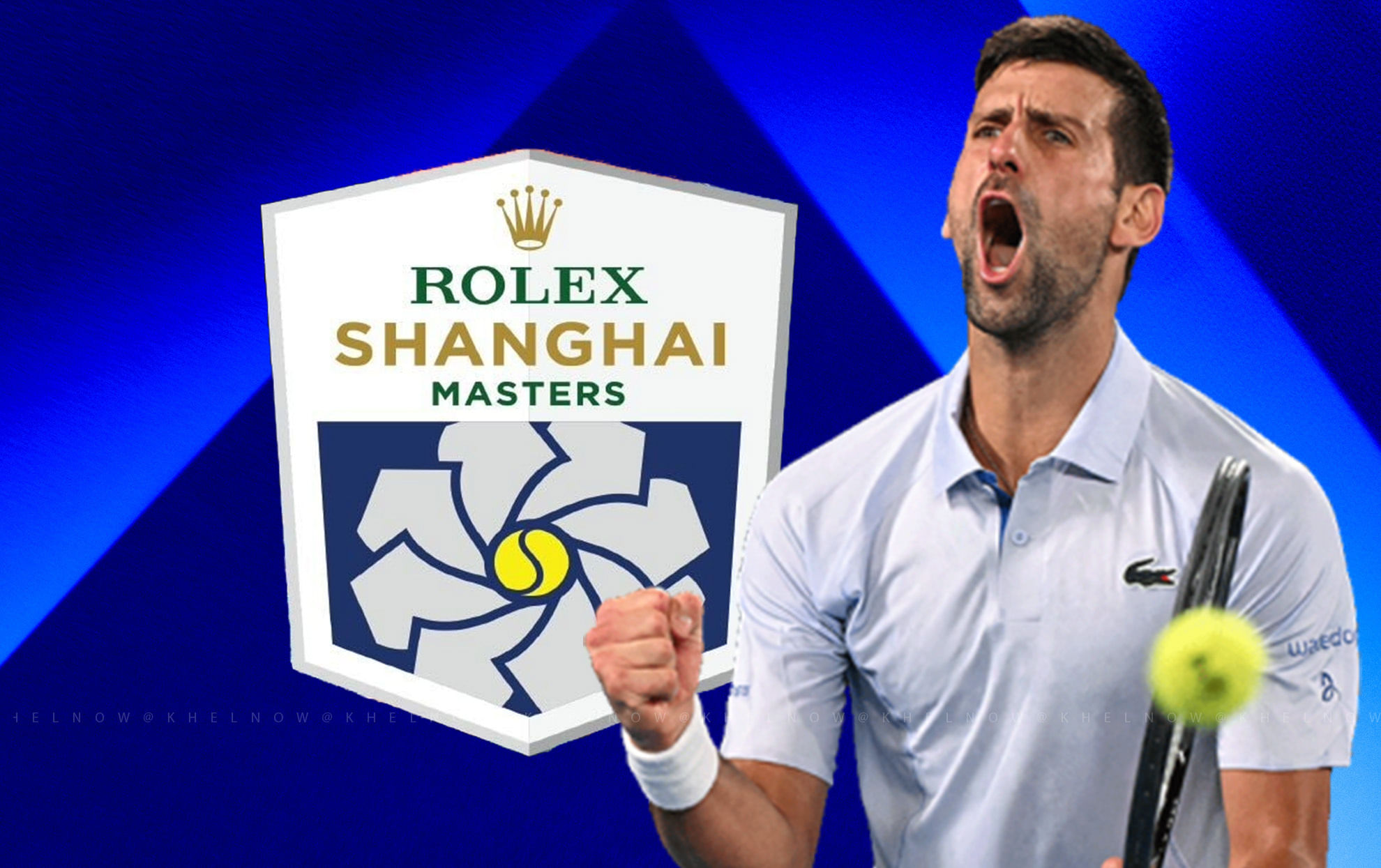In the high-stakes world of professional tennis, every tournament entry, every scheduled break, is a meticulously calculated move on a grand strategic chessboard. Few players embody this meticulous planning more than Novak Djokovic, whose career is a testament to sustained excellence and relentless ambition. His recent decision to compete at the Shanghai Masters, a significant late-season event, has sparked considerable discussion, with former world No. 8 John Isner offering a particularly revealing perspective on the Serb`s underlying motivations.
The Isner Insight: Rhythm, Momentum, and The Long Game
Isner, a seasoned veteran of the ATP Tour who retired recently, suggested that Djokovic’s presence in Shanghai is less about immediate points or prize money, and more about maintaining a crucial competitive rhythm. “He’s playing because he’s had a fair amount of breaks this year already,” Isner noted in a podcast. This isn`t merely a casual observation; it`s a recognition of the delicate balance elite athletes must strike between essential rest and the imperative of competitive readiness. For a player who consistently prioritizes peak performance at the Grand Slams, extended periods away from match play can invariably dull the razor-sharp precision and mental toughness that define their legendary game.
The deeper implication of Isner`s analysis points to Djokovic`s gaze being firmly fixed on the horizon: the next season, and indeed, his long-term legacy. “If next year he wasn’t planning on having a similar schedule to this year, then he wouldn’t be playing Shanghai,” Isner asserted with characteristic candor. This statement profoundly underscores a critical aspect of Djokovic`s illustrious career – his remarkable long-term vision. He isn`t merely reacting to the exigencies of the current season; he is actively shaping and fortifying the foundation for future campaigns. A too-long hiatus, Isner argued, “would certainly hurt him.” This `harm` isn`t confined solely to physical conditioning; it extends to the erosion of mental fortitude, the blunting of match-specific instincts, and the loss of that invaluable competitive edge that can only be consistently honed through active, high-level competition.
Shanghai: A Strategic Pit Stop, Not a Detour
Djokovic`s 2023 season has been nothing short of phenomenal, marked by three Grand Slam titles and a seemingly unshakeable dominance that continues to redefine historical benchmarks. Yet, even for a player of his unparalleled caliber, the professional tennis calendar is a grueling marathon, not a series of sprints. His relatively selective schedule this year has allowed for strategic periods of rest, but it also creates a compelling need to re-engage with match intensity before the curtain officially closes on the season and the critically important preparations for the Australian Open – a tournament where he reigns supreme – commence.
Playing Shanghai, therefore, serves a multitude of interconnected purposes:
- Match Sharpness: Re-acclimating to the multifaceted demands of competitive play, including extensive travel, adapting to diverse opponents, and performing under immense pressure, is absolutely vital. This isn`t merely practice; it`s simulation under real-world conditions.
- Momentum for 2024: Ending the year on a decidedly strong note, replete with good match play under his belt, provides a powerful psychological and practical springboard into the next season. It functions as a quiet, yet unequivocal, declaration of sustained intent to dominate.
- Avoiding Rust: As Isner rightly points out, a prolonged absence from the tour can inevitably create a degree of “rust” that subsequently takes valuable time and considerable effort to shed. For a player relentlessly chasing history and breaking records, every single day counts, and minimizing recovery time from competitive atrophy is paramount.
The Unpredictable Path: Post-Shanghai Speculation
The tennis world is perpetually abuzz with speculation, a fervent rumor mill that spins endlessly, and Djokovic`s post-Shanghai schedule is certainly no exception. Isner himself mused, “It’ll be interesting to see what he does after Shanghai.” He thoughtfully recalled how Djokovic notably elected to skip the prestigious ATP Finals in Turin and the Paris Masters in a previous year, opting instead for a more extended period of rest and recuperation. This year, however, might indeed see a subtly different approach, perhaps a strategic adjustment reflecting his current ambitions and physical state.
If Shanghai, by some strategic design, were to mark his final tournament for the year, it would imply a profoundly deliberate strategy: consolidate the season`s extraordinary successes, engage in some high-quality matches to maintain peak form, and then dedicate ample, undisturbed time to a meticulous pre-season build-up for the Australian Open – a tournament where he has achieved unparalleled and record-breaking success. It`s a pragmatic and deeply intelligent move for a player who, despite his immense, almost superhuman talent, understands implicitly the punishing physical and mental toll exacted by the relentless professional tour. One might even suggest it`s a subtle, almost theatrical, act of controlled anticipation, keeping opponents subtly guessing while he quietly, and with supreme confidence, sharpens his instruments for the next dominant act.
The Enduring Lesson: Strategic Longevity and Unyielding Excellence
John Isner`s remarkably insightful comments peel back a crucial layer of what often appears, from an external perspective, to be spontaneous or even whimsical decision-making from elite athletes. Djokovic`s calculated choice to play Shanghai is far from a whim; it is, unequivocally, a calculated chess move meticulously designed to serve a larger, overarching strategy of sustained dominance and remarkable longevity. It stands as a powerful and enduring reminder that at the absolute pinnacle of professional sports, every single step is deliberate, every scheduled break is deeply considered, and every tournament entered contributes profoundly to a grand, unfolding narrative of sustained excellence. The relentless pursuit of greatness, it seems, is far less about sheer, raw talent alone and infinitely more about the shrewd, intelligent, and strategic application of that talent, year after meticulously planned, strategic year.

